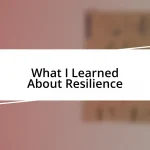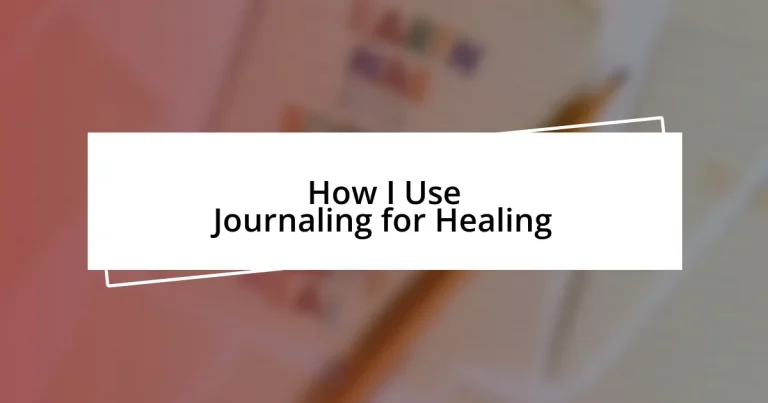Key takeaways:
- Journaling aids in clarifying emotions, fostering self-reflection, and supporting personal growth.
- Daily techniques such as gratitude journaling, free writing, and themed journaling empower individuals to confront feelings and discover insights.
- Reflective prompts encourage vulnerability and self-discovery, helping to dismantle limiting beliefs and appreciate personal connections.
- Tracking progress and celebrating milestones enhances motivation and underscores the significance of personal growth in the journaling journey.
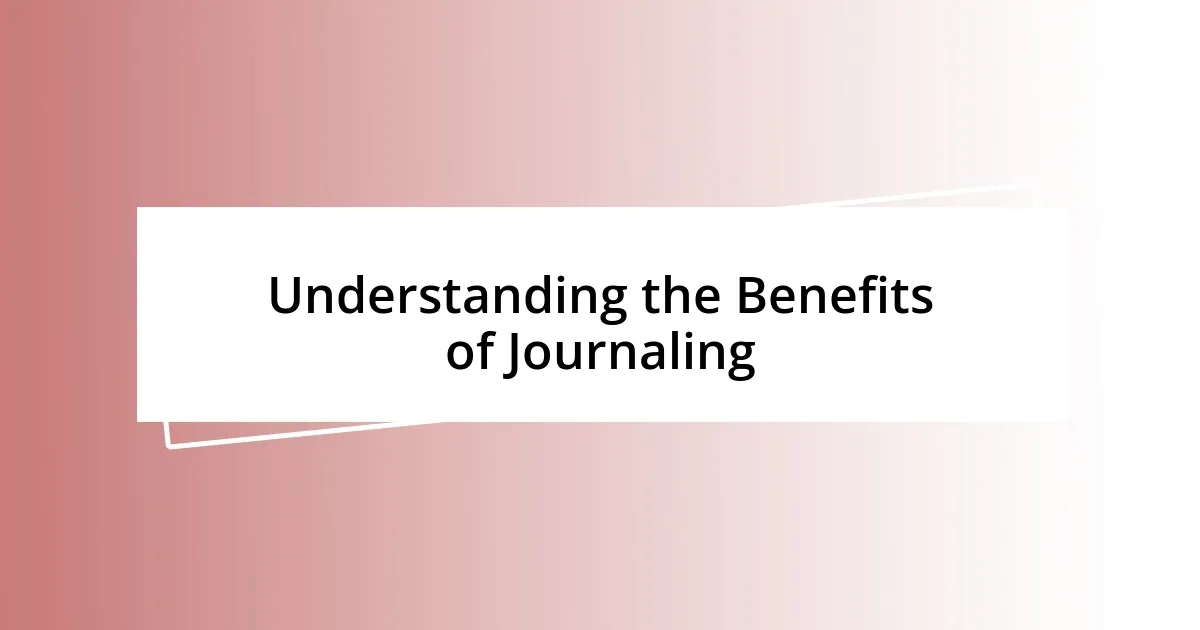
Understanding the Benefits of Journaling
Journaling is like having a personal conversation with yourself. When I put my thoughts down on paper, it’s as if I’m peeling back layers of my psyche. I often ask myself, “What’s really bothering me?” and by exploring that question, I find pathways to healing that I didn’t know existed.
One remarkable benefit of journaling is its ability to clarify emotions. There have been times when I felt overwhelmed by sadness or anxiety, and writing helped me articulate those feelings. I remember a night when I scribbled down my fears about an upcoming change in my life; it felt cathartic as I discovered specific worries that I could then address, instead of letting them simmer in silence.
Additionally, journaling provides an opportunity for self-reflection and growth. I often revisit old entries, noticing how my perspective has shifted over time. It’s intriguing to ponder, “How far have I come?” This practice not only documents my journey but also encourages me to celebrate small victories that might otherwise go unnoticed.

Daily Journaling Techniques for Healing
When I journal daily, I like to start with gratitude. It’s a simple technique, but writing down three things I’m thankful for each morning sets a positive tone for my day. I once realized, during a particularly tough week, that acknowledging even the smallest joys—like a warm cup of coffee or a kind smile from a stranger—helped me navigate my emotions more gracefully.
Another technique I’ve found helpful is free writing. I allow my thoughts to flow without judgment, just writing whatever comes to mind for about ten minutes. This exercise has led me to some surprising revelations. I remember one session where I uncovered pent-up emotions regarding a past relationship, and by expressing those feelings, I felt a weight lifted off my shoulders. It’s not just about writing; it’s about uncovering and processing layers of hurt that I didn’t consciously acknowledge.
Lastly, setting a specific theme for each week can be incredibly enlightening. For instance, I dedicated an entire week to exploring my fears. Each day, I confronted a different fear through writing—big or small. This technique enabled me to confront anxiety head-on. I discovered patterns in what scared me and devised actionable steps to overcome those fears, turning journaling into an empowering tool for personal transformation.
| Technique | Description |
|---|---|
| Gratitude Journaling | Writing down three things you are thankful for each day to promote positivity. |
| Free Writing | Allowing thoughts to flow freely for a set time to uncover emotions and insights. |
| Themed Journaling | Focusing on a particular theme each week to explore and address specific emotions or issues. |
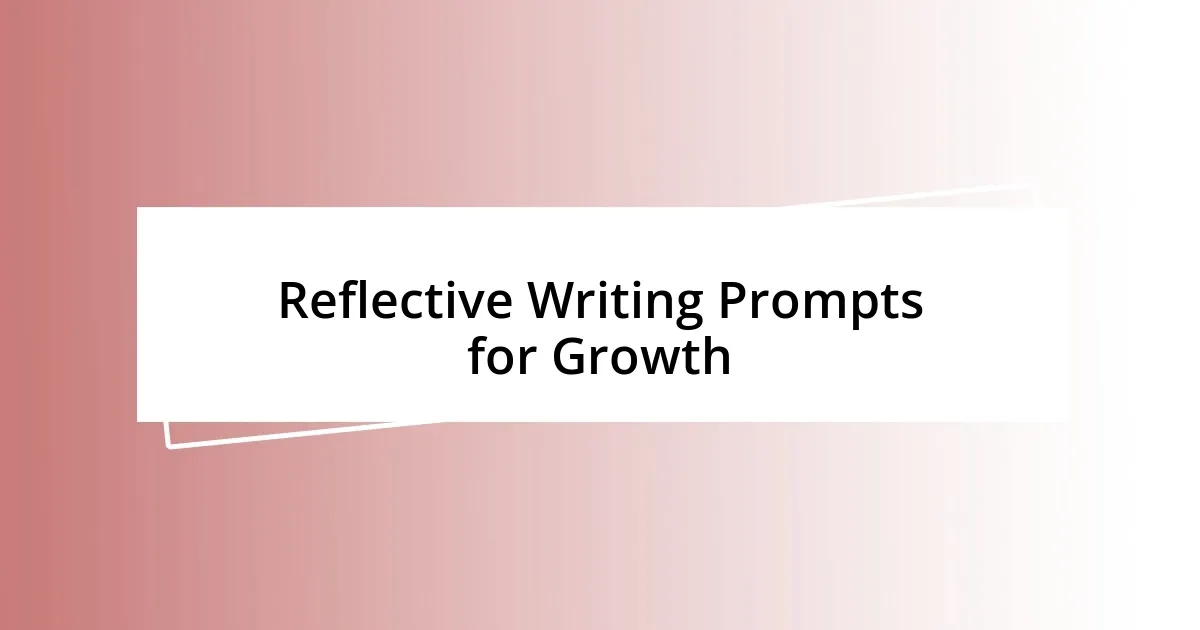
Reflective Writing Prompts for Growth
Reflective writing prompts can be powerful catalysts for growth, pushing me to delve deeper into my thoughts and feelings. I still remember the prompt, “What limiting beliefs are holding me back?” The moment I confronted my fears of not being enough, I felt an overwhelming rush of clarity. Writing about those limitations helped me dismantle them bit by bit, transforming self-doubt into motivation.
I also find that prompts encouraging vulnerability can be incredibly revealing. For example, “Describe a time when I felt truly seen” opened a floodgate of memories that made me appreciate moments of connection I often overlooked. Here are some reflective prompts that I frequently use for my journaling:
- What do I need to let go of to move forward?
- In what ways do I define success for myself?
- What life lessons have I learned from my biggest challenges?
- How do I want to grow in the next year?
- What strengths do I possess that I don’t acknowledge enough?
These prompts not only guide my reflections but also create pathways for meaningful growth and self-discovery.
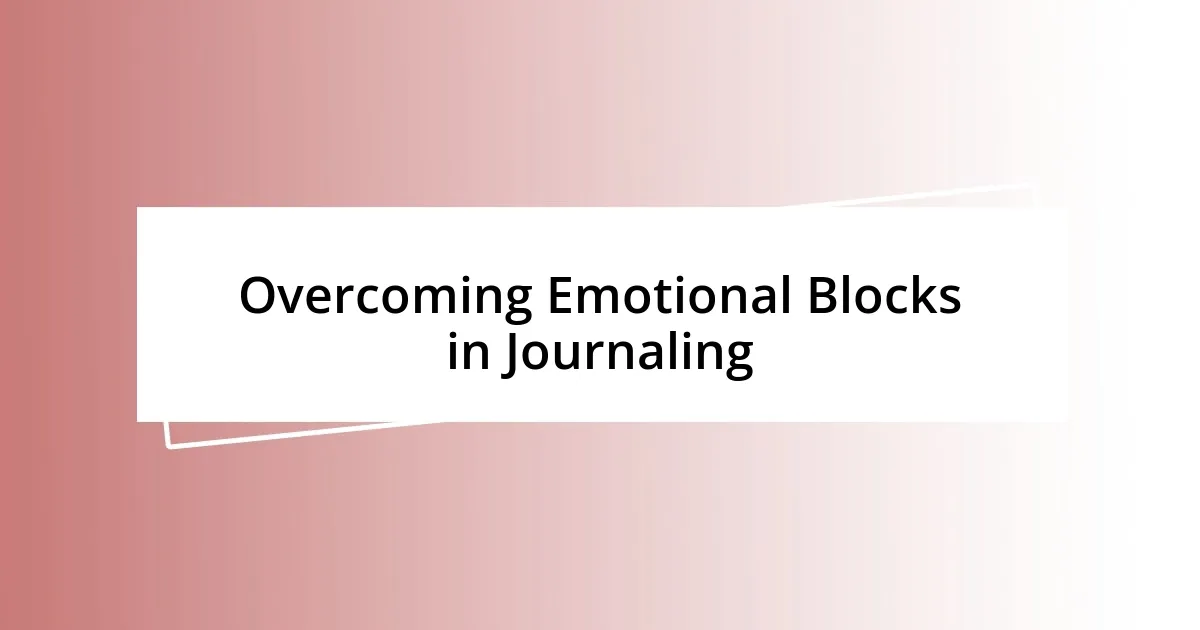
Overcoming Emotional Blocks in Journaling
Journaling can sometimes feel intimidating, especially when emotional blocks pop up like unwelcome guests. I remember sitting in front of my notebook, feeling paralyzed by the weight of things I wanted to express but couldn’t quite articulate. It’s as if my pen decided to take a vacation. During those moments, I found it helpful to focus on just one word or image that represented how I felt. This simple act unlocked a floodgate of emotions and writings that I didn’t know I was holding back.
Another strategy I employ is writing letters—either to myself or to someone else. For example, I once wrote a letter to my younger self, acknowledging all the pain and confusion I’d experienced. In taking this approach, I began to process feelings that I had buried for years. Isn’t it fascinating how stepping out of our current mindset can provide a clearer lens to view past experiences? This technique has transformed my journal into a safe space for both healing and reconciling with my past.
Discomfort is often a signal that something deep needs addressing. There was a time when I felt the urge to write about a recent loss but was overwhelmed with fear. Would my words be enough? Would I expose parts of my soul that I wasn’t ready to share? It was actually the act of forcing myself to write about those feelings—no matter how tangled and raw—that eventually provided clarity. I emerged feeling lighter, with a deeper understanding of how emotional blocks can transform into stepping stones toward healing.
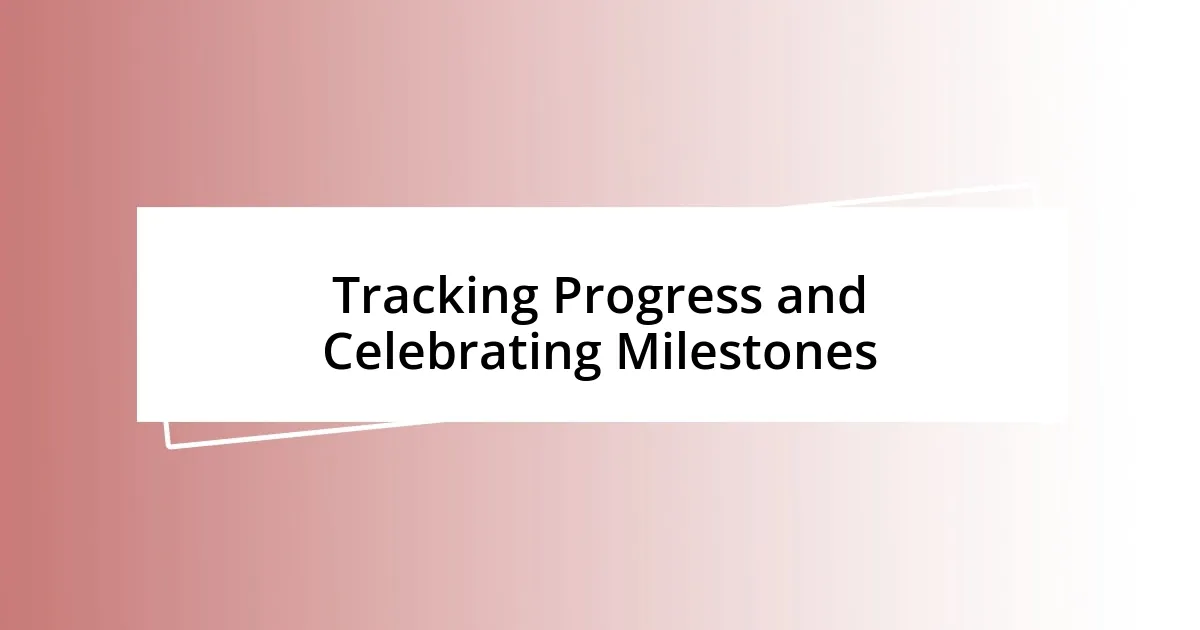
Tracking Progress and Celebrating Milestones
Tracking progress in my journaling journey has been a transformative experience. I often revisit past entries to gauge how far I’ve come. There’s something incredibly empowering about reflecting on past struggles and realizing they’ve shaped my growth. Have you ever read something you wrote months ago and felt a sense of pride, knowing you’ve overcome those feelings? I certainly have. It’s like catching a glimpse of a former version of myself and saying, “Look how much stronger you’ve become.”
Celebrating milestones is key to maintaining motivation and positivity. I remember when I reached a point where I could write unfiltered about my emotions without fear. I marked that achievement by treating myself to a day of self-care—maybe a cozy reading session or a long walk in nature. It’s important to acknowledge those turning points because they validate the effort I’ve invested in my mental health. What do you do when you hit a milestone? Even little wins deserve a celebration!
As I track my progress and celebrate milestones, I also find it beneficial to set intentions for the future. I often write about what I aspire to achieve in the coming months, creating a vision similar to what athletes do when they aim for a personal best. This approach not only keeps me focused but also adds an inspiring layer to my journaling practice. It’s as if each entry becomes a step on a much larger journey, guiding me toward ongoing healing and self-discovery. How do you envision your journey evolving?
